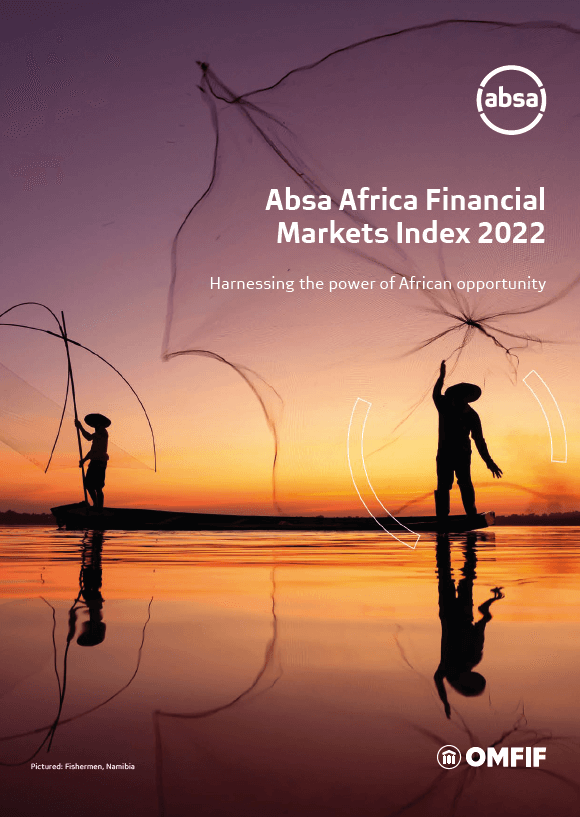Fitch Ratings has assigned Tanzania a Long-Term Foreign-Currency Issuer Default Rating (IDR) of ‘B+’ with a Stable Outlook.
According to the international ratings company, Tanzania’s ‘B+’ rating reflects its fairly strong macroeconomic performance with high real GDP growth and contained inflation, a moderate level of debt, and increased reform momentum backed by a new IMF programme, balanced by weak governance and a fairly weak macroeconomic policy framework, public financial management problems, low GDP per capita and external sector pressures.
Fitch expects Tanzania’s real GDP growth to rise to 5.2% in 2023 and 6.0% in 2024, from 4.7% in 2022, supported by increased mining and tourism activity as well as infrastructure investment. In the long term, real GDP growth will benefit from the development of offshore gas fields and LNG production, during the construction phase and the first years of production. Fitch expects the LNG developments to start affecting GDP growth from 2028.
Tanzania’s inflation remains below the central bank’s 5% target, although this partly reflects temporary fuel subsidies. Fitch forecasts inflation of 4.6% in 2023 and 4% in 2024, after 4.3% in 2022.

The weak macroeconomic policy framework, including limited central bank independence and weak capacity, is a rating constraint, despite improvements that are supported by the USD1 billion 40-month IMF Extended Credit Facility (ECF) concluded in July 2022. Growth volatility is low but this may understate macroeconomic stability risks given the importance of the agricultural sector, which is rain-dependent and highly vulnerable to natural disasters.
Tanzania has a record of weak public financial management. Long-standing over-forecasting of revenue combined with weak cash management and limited commitments controls has led to accumulation of expenditure and VAT refund arrears. Under the ECF, authorities completed the verification of arrears and started implementing a strategy to clear existing arrears and prevent renewed accumulation.
Outstanding supplier arrears decreased to 1.3% of GDP at end-2022 from 2.6% at end-June 2021. Central government also has arrears to pension funds of 1.4% of GDP. The IMF has highlighted weaknesses in public investment management, especially in project selection, project portfolio management and oversight, and management of project implementation.
Central government debt excluding domestic expenditure and VAT refund arrears is expected to be stable at 41.4% at end-June 2023, the end of the 2023 fiscal year (FY23), after 41.5% at end-FY22, well below the 59% ‘B’ median, followed by a decrease to 40.5% in FY24. Debt sustainability is supported by the high share of concessional debt, with 67% of public external debt concessional and 19% semi-concessional at end-2022.
In accordance with Tanzania’s preferred financing strategy, Fitch anticipates a continuation of this mix to finance large public infrastructure projects. However, we expect the level of concessionality of external debt to decline as Tanzania graduated to lower middle-income status in 2019, and with potential access to international capital markets. Interest payments will moderately increase to 14% in FY24 from 11% in FY22.
Fitch expects an overall deficit of 3.3% of GDP for the fiscal year ending in June 2023 (FY23), unchanged from FY22. The government forecasts a 2.7% deficit, but we expect slower revenue growth that will only be partially offset by a slowdown in expenditure growth.
“We forecast the deficit to moderately decline to 3% in FY24 on the back of further revenue measures and the removal, effective in January 2023, of fuel subsidies that were introduced in July 2022 (worth 0.3% of GDP in FY23), only partly offset by increases in civil servants’ wages,” the ratings firm said in a statement.
Tanzania’s revenue collection is still constrained by poorly targeted tax exemptions and inefficiencies within the tax collection process. Authorities have committed to rationalising tax incentives by July 2024 to reduce the cost of tax expenditures to 1% of GDP, but details on how this will be achieved are yet to be published. We forecast total revenue, including grants, to moderately increase to 14.9% of GDP in FY24, from 14.7% in FY23.
Tanzania’s current account deficit (CAD) widened to 6.9% of GDP in 2022, from 3.4% in 2021, mainly due to a rising import bill driven by high oil prices despite a rebound in tourism receipts.
“We expect the CAD to fall to 4.7% of GDP in 2023 and 4.2% in 2024. The widening of the CAD and debt service for development projects combined with the tightly managed exchange-rate regime contributed to a fall of official reserves to USD5.2 billion at end-2022 (3.4 months of current external payments), from a record high of USD6.4 billion at end-2021 (5.9 months). We anticipate a moderate increase to USD5.7 billion in 2024, driven by the reduction in the CAD, international financial institution disbursements and increased FDI inflows,” the ratings firm said.
Fitch does not expect potential materialization of contingent liabilities to have a significant impact on fiscal metrics, as the size of state-owned enterprise (SOE) debt remains modest, at around 3% of GDP, although some large SOEs remain highly leveraged and equity injections may continue adding to government financing needs. The government also has contingent liabilities of about TZS4.8 trillion (2.7% of GDP) for its guarantee provided to the state-owned National Insurance Company’s coverage of the construction of Julius Nyerere hydropower plant by Egypt. The guarantee will expire upon completion of the construction, expected in 2024.
Reduced Political Risks
Political stability is supported by the Reconciliation, Resilience, Reforms, Rebuild agenda announced in April 2022. In January 2023, this led to the lifting of a six-year ban on opposition rallies and the issuance of new publishing licences to opposition papers and a proposed constitutional reform aimed at allowing all National Electoral Commission decisions to be challenged in court. We do not foresee any significant risk to policy continuity as the ruling party CCM does not face effective opposition on the mainland.
Proactive engagement with the international community
Renewed proactive engagement with the international community, in particular with neighbouring countries and with international financial institutions, supports Tanzania’s creditworthiness. In January 2023, all trade barriers between Kenya and Tanzania were removed, supporting Tanzania’s trade balance as a net exporter to Kenya.
ESG – Governance:
Tanzania has an ESG Relevance Score (RS) of ‘5’ for both Political Stability and Rights and for the Rule of Law, Institutional and Regulatory Quality and Control of Corruption. Theses scores reflect the high weight that the World Bank Governance Indicators (WBGI) have in our proprietary Sovereign Rating Model. Tanzania has a low WBGI ranking at 32th percentile, reflecting weak government effectiveness, rule of law and political stability and absence of violence and a moderate level of control of corruption.







